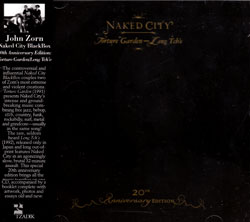
Two controversial and influential releases from John Zorn in the early 90s: "Torture Garden", rapidly merging jazz, r&b, surf, metal and grindcore; and "Leng Tch'e", extreme and violent music.
Out of Stock
Quantity in Basket: None
Log In to use our Wish List
Shipping Weight: 6.00 units
Sample The Album:
Joey Baron-Drums
Yamataka Eye-Vocals
Bill Frisell-Guitar
Fred Frith-Bass
Wayne Horvitz-Keyboards
John Zorn-Alto Sax
Click an artist name above to see in-stock items for that artist.
UPC: 702397731221
Label: Tzadik
Catalog ID: CD-TZA-7312
Squidco Product Code: 13716
Format: CD
Condition: New
Released: 2010
Country: USA
Packaging: Jewel Tray
Originally released in 1991 and 1992.
"The controversial and influential Naked City Black Box couples two of Zorn's most extreme and violent creations. Torture Garden (1991) presents Naked City's intense and groundbreaking music combining free jazz, bebop, r&b, country, funk, rockabilly, surf, metal and grindcore-usually in the same song! The rare, seldom heard Leng Tch'e (1992), released only in Japan and long out-of-print features Naked City in an agonizingly slow, brutal 32-minute assault. This special 20th anniversary edition brings all the music together on one CD, accompanied by a booklet complete with artwork, photos and essays old and new."-Tzadik
Artist Biographies
• Show Bio for Joey Baron "Bernard Joseph Baron (born June 26, 1955 in Richmond, Virginia) is an American avant-garde jazz drummer who plays frequently with Bill Frisell and John Zorn. Baron was born on June 26, 1955, in Richmond Virginia. When he was nine, he taught himself how to play the drums. As a teenager, he played in rock bands and dixieland jazz groups. After high school, he spent a year at the Berklee College of Music. He moved to Los Angeles in the early 1970s and embarked on a professional career, playing with Carmen McRae and Al Jarreau. He worked as a freelance drummer and session musician with Chet Baker, Stan Getz, Dizzy Gillespie, and Hampton Hawes. In 1982 he moved to New York City and joined guitarist Bill Frisell, with whom he would play often throughout his career. He also played in groups with Red Rodney, Fred Hersch, Enrico Pieranunzi, and Marc Johnson. Starting in the late 1980s, he became a bigger part of the avant-garde jazz scene when he played regularly at the Knitting Factory, recorded with singer Laurie Anderson, and began a long association with John Zorn. For several years he participated in Zorn's projects Naked City and Masada. Baron contributed to David Bowie's Outside (1995). Bowie would later praise Baron, stating: "Metronomes shake in fear, he's so steady." " ^ Hide Bio for Joey Baron • Show Bio for Yamataka Eye "Yamataka Eye (山塚アイ, Yamataka Ai) (born Tetsurō Yamatsuka (山塚徹郎, Yamatsuka Tetsurō), 13 February 1964) is a Japanese vocalist and visual artist, best known as a member of Boredoms and Naked City. He has changed his stage name three times, from Yamatsuka Eye, to Yamantaka Eye, to Yamataka Eye, and sometimes calls himself eYe or EYヨ. He also DJs under the name DJ 光光光 or "DJ pica pica pica" ("pica" means "bright" or "shiny"), and has used numerous other pseudonyms." ^ Hide Bio for Yamataka Eye • Show Bio for Bill Frisell "Born in Baltimore, Bill Frisell played clarinet throughout his childhood in Denver, Colorado. His interest in guitar began with his exposure to pop music on the radio. Soon, the Chicago Blues became a passion through the work of Otis Rush, B.B. King, Paul Butterfield and Buddy Guy. In high school, he played in bands covering pop and soul classics, James Brown and other dance material. Later, Bill studied music at the University of Northern Colorado before attending Berklee College of Music in Boston where he studied with John Damian, Herb Pomeroy and Michael Gibbs. In 1978, Frisell moved for a year to Belgium where he concentrated on writing music. In this period, he toured with Michael Gibbs and first recorded with German bassist Eberhard Weber. Bill moved to the New York City area in 1979 and stayed until 1989. He now lives in Seattle. "When I was 16, I was listening to a lot of surfing music, a lot of English rock. Then I saw Wes Montgomery and somehow that kind of turned me around. Later, Jim Hall made a big impression on me and I took some lessons with him. I suppose I play the kind of harmonic things Jim would play but with a sound that comes from Jimi Hendrix", Frisell told Wire. Bill also lists Paul Motian, Thelonious Monk, Aaron Copland, Bob Dylan, Miles Davis and his teacher, Dale Bruning, as musical influences. Bill recorded his first two albums as a leader on ECM, both produced by Manfred Eicher. Subdued and lyrical in nature, In Line, the first of the ECM recordings, employed both electric and acoustic guitars in a series of solos (including some overdubbing) and duets with bassist Arild Andersen. Second was Rambler, featuring Kenny Wheeler, Bob Stewart, Jerome Harris and Paul Motian. About Rambler, Fanfare said: "Bill Frisell has built a little masterpiece here - not just a showcase for his own instrumental creativity (of which there is much in evidence), but a clever and poetic whole." Frisell's third album and last for ECM, Lookout For Hope, marked the recording debut of The Bill Frisell Band featuring Hank Roberts, Kermit Driscoll and Joey Baron. Produced by Lee Townsend, the album's diverse material - ranging from country swing to reggae, quasi-heavy metal and backbeat rock with a twist to Monk's "Hackensack" - nevertheless possessed the cohesive and unmistakable personality of a working band on to a sound of its own. High Fidelity called it "the fullest showing of Frisell's ability to date, especially his compositional range." The Chicago Tribune said, "Lookout For Hope offers one of the most hopeful signs that contemporary jazz can evolve with dignity, wit and charm." Before We Were Born, Frisell's debut recording for Nonesuch, featured three musical settings: Peter Scherer and Arto Lindsay produced, co-arranged and performed on three Frisell compositions. "Some Song and Dance", produced by Lee Townsend, is a suite of four pieces performed by Frisell's Band with a saxophone section featuring Julius Hemphill, Billy Drewes and Doug Wieselman. Frisell's "Hard Plains Drifter" is an extended work shaped, produced and arranged by John Zorn and played by the Frisell Band. The New York Times observed: "By following through on the implications of his unfettered sounds, Mr. Frisell has made his best album." Frisell's second Nonesuch album, Is That You?, features nine original Frisell compositions, one by producer Wayne Horvitz and two cover tunes - "Chain of Fools" and "Days of Wine and Roses". With Frisell playing guitars, bass, banjo, ukulele and even clarinet, Is That You? demonstrated with great clarity his pan-stylistic, yet strangely unified musical world. Musician called the album "a very personal vision, tearing down stylistic barriers with delicacy and sudden bursts of emotion." Frisell's third album for Nonesuch, Where in the World?, also produced by Wayne Horvitz, was the band's final recording with cellist Hank Roberts. The Philadelphia Inquirer said: "There is nothing standard about Where in the World?...Frisell is not only a master of an unusual guitar-based sonic tapestry, he's one of the few composers capable of writing for an interactive ensemble." Have a Little Faith, Frisell's 1992 Nonesuch recording, was something of a tribute album. Here, he interpreted the music of a number of American composers whose music had inspired him - Aaron Copland, Muddy Waters, Bob Dylan, John Hiatt, Sonny Rollins, Stephen Foster, Charles Ives, Victor Young, Madonna and John Philip Sousa. The extent to which Bill has made this music his own demonstrates the completeness of its link to his own compositional approach. For this recording Frisell's Band was augmented by Don Byron (clarinet, bass clarinet) and Guy Klucevsek (accordion) and produced by Wayne Horvitz. The San Francisco Bay Guardian said, "Frisell treats each piece with typical earnestness and lyricism, breaking into wrenching distortion and stormy group improv only after breathing the original full of a softly glowing life." This Land, Frisell's fifth Nonesuch recording, consists of all original material with the band and a horn section of Don Byron (clarinets), Billy Drewes (alto saxophone) and Curtis Fowlkes (trombone). Produced by Lee Townsend, the album readily displays the connection between Frisell's own writing and the composers' work to whom he pays tribute on his previous Have a Little Faith. From the standpoint of synthesizing his celebrated composing and arranging talents with exuberant improvising and spirited band interaction, it is a landmark recording, which prompted this description in Rolling Stone: "Strange meetings of the mysterious and the earthy, the melancholy and the giddy, make perfect sense by Frisell's deliciously warped way of thinking. The warpage is catching on and not a moment too soon." In 1994, Frisell recorded a pair of recordings of music that he composed for three silent Buster Keaton films - The High Sign, One Week and Go West. The band premiered this music along with the films to a spirited and sold-out audience at St. Ann's in Brooklyn in May '93. The pairing displayed a natural affinity between work of both artists. Their works together possess an undeniable sense of adventure and penchant for the unexpected that only enhances the warmth and humanity of both the musical elements and the films themselves. It has proven to be the rare case where the whole truly transcends the sum of its parts. Of the "Go West" recording , Billboard noted: "With this set of music for the classic Buster Keaton film, "Go West," Bill Frisell has crafted one of his finest, most evocative albums. Evincing his best qualities as both guitarist and composer, he harvests melancholy Americana from deceptively modest, episodic themes. Coloring the scenes with acoustic as well as his trademark electric, Frisell produces strangely cinematic motifs on guitar, and his rhythm cohorts - longtime bassist Kermit Driscoll and drummer Joey Baron - provide abundant narrative drive." Both albums were produced by Lee Townsend. Frisell's success with the Keaton films has led him to other film-related projects. He scored the music for Gary Larson's "Tales From the Far Side" animated television special and Daniele Luchetti's Italian feature film, "La Scuola." Some of the music from these projects has been adapted and recorded by Frisell on Quartet, Frisell's Nonesuch recording released in April '96. The formation of the Quartet, with Ron Miles (trumpet), Eyvind Kang (violin) and Curtis Fowlkes (trombone), was a new working band for Frisell, who had worked with the telepathic rhythm combination of Kermit Driscoll and Joey Baron for nearly ten years. Frisell told Down Beat: "It's so different from the traditional guitar-bass-drum thing, even though Joey Baron, Kermit Driscoll and I never played like a typical jazz trio. This group, with violin and brass, can play an orchestral range of sounds. It's gigantic. It's given me a chance to write and arrange in an even bigger way." Quartet, was quickly hailed by critics. The New York Times declared: "Quartet may be his masterpiece." Nonesuch released Nashville in April of 1997. Recorded in Nashville and produced by Wayne Horvitz with members of Allison Krauss' Union Station band - mandolin player Adam Steffey and banjo player Ron Block - the project also features her brother and Lyle Lovett's bass player Viktor Krauss, dobro great Jerry Douglas, vocalist Robin Holcomb and Pat Bergeson on harmonica. "Comprising acoustic instrumental folk tunes with unpredictable stylistic accents, Nashville boasts a dreamy, seductive grandeur. The backing mandolin/dobro/bass interplay simmers - Frisell himself picks and strings and most of all floats, laying out liquid tones that settle over the melodies like heat haze on a swampy, swimmerless lake." wrote the LA Weekly. The Atlanta Journal-Constitution summed it up simply as, "Frisell's nod to Nashville is Americana at its best." In January of 1998 Frisell's next project Gone, Just Like A Train came out. On this exceptionally melodic and rhythmically vital instrumental collection of original compositions, Frisell is joined by Viktor Krauss and by Jim Keltner, all star drummer of choice for Bob Dylan, Ry Cooder, T-Bone Burnett, George Harrison, John Lennon and The Traveling Wilburys. The Rocket in Seattle wrote that "Frisell has managed to pull together an ad hoc super trio of musicians from drastically different pasts, and they manage to assemble a machine of colossal proportions: part skewered jazz, part roadside folk blues, part gritty rock..Gone presents Frisell at a creative apex. He's integrated a thoroughly unique understanding of so much American Music. And it's all gift-wrapped in a lean, unimposing trio framework that conveys sheer genius in a million directions. It flies with shining power." Produced by Lee Townsend, the album proved to be one of Frisell's most celebrated and popular to date. Good Dog, Happy Man, brims full of Frisell's shimmering original compositions. Here he is reunited with the Gone Just Like a Train rhythm section of Viktor Krauss on bass and Jim Keltner on drums and joined by Wayne Horvitz on Hammond B3 organ, multi-instrumentalist/slide guitarist Greg Leisz (known for his work with Joni Mitchell, K.D. Lang, Emmy Lou Harris, Beck and Jimmie Dale Gilmore, among others) plus special guest Ry Cooder on the traditional folk song "Shenendoah". Produced by Lee Townsend, Good Dog, Happy Man celebrates Frisell's emergence as a composer who has created a genre unto himself. The Philadelphia Inquirer wrote: "The 12 breathtakingly beautiful originals on Good Dog, Happy Man resist every obvious classification. Frisell's been doing the undefinable for years - creating revelatory music from threadbare accompaniment; finding vital contexts for jazz improvisation that are worlds away from bebop; burying shiny nuggets of melody beneath a gauzy lace-like surface. Frisell manages to evoke big worlds with stark single notes and foreboding sustained tones, conjuring a richly textured atmosphere that is both understated and undeniable. No matter what you call it." " ^ Hide Bio for Bill Frisell • Show Bio for Fred Frith "Though the point of reference for many remains the iconic band Henry Cow, which he co-founded in 1968 and which broke up more than 30 years ago, Fred Frith has never really stood still for an instant. In bands such as Art Bears, Massacre, Skeleton Crew, Keep the Dog, Tense Serenity, the Fred Frith Guitar Quartet, Eye to Ear, and most recently Cosa Brava, he has always held true to his roots in rock and folk music, while exploring influences that range from the literary works of Eduardo Galeano to the art installations of Cornelia Parker. The release of the seminal Guitar Solos in 1974 enabled him to simultaneously carve out a place for himself in the international improvised music scene, not only as an acclaimed solo performer but in the company of artists as diverse as Han Bennink, Chris Cutler, Jean-Pierre Drouet, Evelyn Glennie, Ikue Mori, Louis Sclavis, Stevie Wishart, Wu Fei, Camel Zekri, John Zorn, and scores of others. He has also developed a personal compositional language in works written for Arditti Quartet, Asko Ensemble, Bang on a Can All-Stars, Ensemble Modern, Concerto Köln, and ROVA Sax Quartet, for example. Fred has been active as a composer for dance since the early 1980s, working with choreographers Bebe Miller, François Verret, and especially long-time collaborator and friend Amanda Miller, with whom he has created a compelling body of work over the last twenty years. His film soundtracks (for award-winning films like Thomas Riedelsheimer's Rivers and Tides and Touch the Sound, Peter Mettler's Gambling, Gods, and LSD, and Deborah Kaufman and Alan Snitow's Thirst, to name a few) won him a lifetime achievement award from Prague's "Music on Film, Film on Music" Festival (MOFFOM) in 2007. The following year he received Italy's Demetrio Stratos Prize (previously given to Diamanda Galas and Meredith Monk) for his life's work in experimental music, and in 2010 was awarded an honorary doctorate from the University of Huddersfield in his home county of Yorkshire. Fred currently teaches in the Music Department at Mills College in Oakland, California (renowned for over fifty years as the epicenter of the American experimental tradition), and in the Musik Akademie in Basel, Switzerland." ^ Hide Bio for Fred Frith • Show Bio for Wayne Horvitz "Wayne Horvitz is a composer, pianist and electronic musician who has performed extensively throughout Europe, Asia, Australia, and North America. He is the leader of the Gravitas Quartet, Sweeter Than the Day, Zony Mash, The Four plus One Ensemble and co-founder of the New York Composers Orchestra. He has performed and collaborated with Bill Frisell, Butch Morris, John Zorn, George Lewis, Robin Holcomb, Fred Frith, Julian Priester, Michael Shrieve and Carla Bley, among others. Commissioners include the NEA, Meet the Composer, Kronos String Quartet, Seattle Chamber Players, BAM, and Earshot Jazz. Collaborators include Paul Taylor, Liz Lerman, Bill Irwin and Gus Van Sant. He has been the recipient of numerous awards including two MAP grants and the NEA American Masterpiece award. Recent compositions include The Heartsong of Charging Elk based on the novel by James Welch and 55: Music and Dance in Concrete: a site-specific collaboration with dancer Yukio Suzuki and video artist Yohei Saito. He is the music programmer for The Royal Room, a performance venue in Seattle, Washington, and a professor of composition at the Cornish College of the Arts." ^ Hide Bio for Wayne Horvitz • Show Bio for John Zorn "John Zorn (born September 2, 1953) is an American composer, arranger, producer, saxophonist, and multi-instrumentalist with hundreds of album credits as performer, composer, and producer across a variety of genres including jazz, rock, hardcore, classical, surf, metal, klezmer, soundtrack, ambient, and improvised music. He incorporates diverse styles in his compositions which he identifies as avant-garde or experimental. Zorn was described by Down Beat as "one of our most important composers". Zorn established himself within the New York City downtown music movement in the mid-1970s performing with musicians across the sonic spectrum and developing experimental methods of composing new music. After releasing albums on several independent US and European labels, Zorn signed with Elektra Nonesuch and received wide acclaim with the release of The Big Gundown, an album reworking the compositions of Ennio Morricone. He attracted further attention worldwide with the release of Spillane in 1987, and Naked City in 1989. After spending almost a decade travelling between Japan and the US he made New York his permanent base and established his own record label, Tzadik, in the mid-1990s. Tzadik enabled Zorn to maintain independence from the mainstream music industry and ensured the continued availability of his growing catalog of recordings, allowing him to prolifically record and release new material, issuing several new albums each year, as well as promoting the work of many other musicians. Zorn has led the hardcore bands Naked City and Painkiller, the klezmer/free jazz-influenced quartet Masada, composed over 600 pieces as part of the Masada Songbooks that have been performed by an array of groups, composed concert music for classical ensembles and orchestras, and produced music for opera, sound installations, film and documentary. Zorn has undertaken many tours of Europe, Asia, and the Middle East, often performing at festivals with many other musicians and ensembles that perform his diverse output. Zorn's compositions cross many genres and he has stated "All the various styles are organically connected to one another. I'm an additive person-the entire storehouse of my knowledge informs everything I do. People are so obsessed with the surface that they can't see the connections, but they are there." For Zorn "Composing is more than just imagining music-it's knowing how to communicate it to musicians. And you don't give an improviser music that's completely written out, or ask a classical musician to improvise. I'm interested in speaking to musicians in their own languages, on their own terms, and in bringing out the best in what they do. To challenge them and excite them." " ^ Hide Bio for John Zorn
3/31/2025
Have a better biography or biography source? Please Contact Us so that we can update this biography.
3/31/2025
Have a better biography or biography source? Please Contact Us so that we can update this biography.
3/31/2025
Have a better biography or biography source? Please Contact Us so that we can update this biography.
3/31/2025
Have a better biography or biography source? Please Contact Us so that we can update this biography.
3/31/2025
Have a better biography or biography source? Please Contact Us so that we can update this biography.
3/31/2025
Have a better biography or biography source? Please Contact Us so that we can update this biography.
Track Listing:
1. Blood is Thin 1:04
2. Demon Sanctuary 0:42
3. Thrash Jazz Assassin 0:49
4. Dead Spot 0:35
5. Bonehead 0:56
6. Speedball 0:40
7. Blood Duster 0:18
8. Pile Driver 0:38
9. Shangkuan Ling-Feng 1:19
10. Numbskull 0:32
11. Perfume of a Critic's Burning Flesh 0:28
12. Jazz Snob Eat Shit 0:28
13. The Prestidigitator 0:48
14. No Reason to Believe 0:28
15. Hellraiser 0:42
16. Torture Garden 0:40
17. Slan 0:26
18. Hammerhead 0:12
19. The Ways of Pain 0:36
20. The Noose 0:13
21. Sack of Shit 0:48
22. Blunt Instrument 0:56
23. Osaka Bondage 1:18
24. Igneous Ejaculation 0:25
25. Shallow Grave 0:43
26. Ujaku 0:31
27. Kaoru 0:55
28. Dead Dread 0:49
29. Billy Liar 0:15
30. Victims of Torture 0:26
31. Speedfreaks 0:52
32. New Jersey Scum Swamp 0:44
33. S && M Sniper 0:17
34. Pigfucker 0:27
35. Cairo Chop Shop 0:26
36. Fuck the Facts 0:15
37. Obeah Man 0:21
38. Facelifter 0:59
39. Whiplash 0:23
40. The Blade 0:43
41. Gob of Spit 0:20
42. Leng Tch'e 31:38
Tzadik
Improvised Music
Jazz
NY Downtown & Jazz/Improv
Zorn. John
Sextet Recordings
Instant Rewards
Search for other titles on the label:
Tzadik.


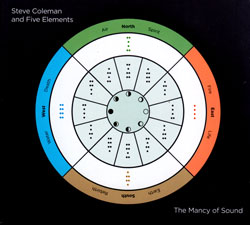
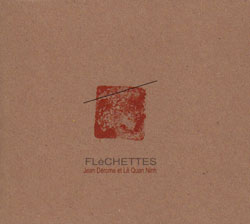
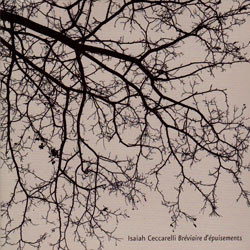
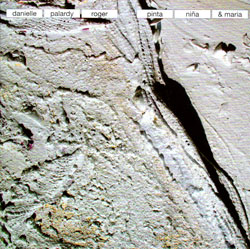
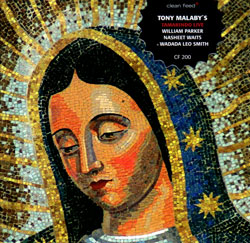
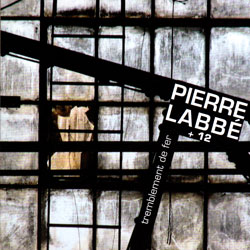
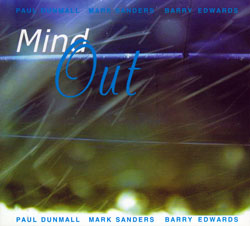
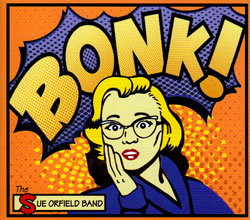
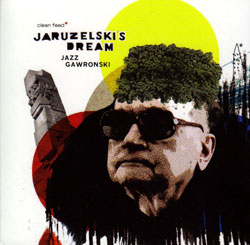
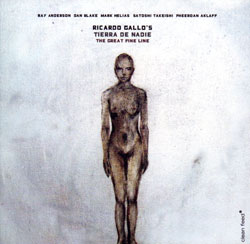
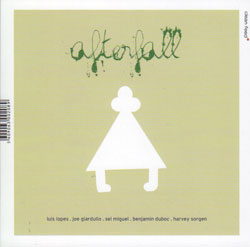
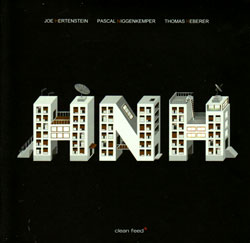
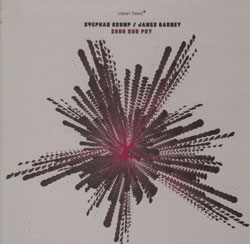
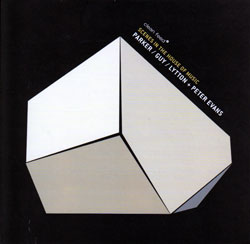
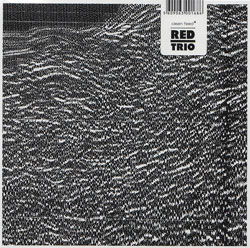
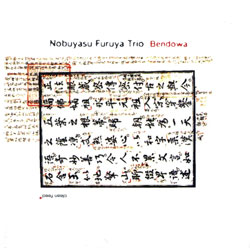

![Rodrigues, Ernesto / Nuno Torres / Guilherme Rodrigues: Whispers In The Moonlight - In Seven Movements [2CDs]](https://www.teuthida.com/productImages/misc4/35765.jpg)



![Cocks, Laura: FATHM [VINYL]](https://www.teuthida.com/productImages/misc4/36055.jpg)










![Ackerley / Prymek / Turner: All Hope With Sleeping Minds [CASSETTE]](https://www.teuthida.com/productImages/misc4/35950.jpg)
![Myers, David Lee : Tin Drop Tear [BOOK w/ DOWNLOAD]](https://www.teuthida.com/productImages/misc4/36030.jpg)



![Schindler, Udo / Sandy Ewen / Damon Smith: Munich Sound Studies Vols. 4, 5 & 6 [3 CDs]](https://www.teuthida.com/productImages/misc4/35966.jpg)






![Turbulence Orchestra & Sub-Units: Smear Out the Difficulties (Double Live) [2 CDs]](https://www.teuthida.com/productImages/misc4/36048.jpg)
![Perelman, Ivo / Tyshawn Sorey: Paralell Aesthetics [2 CDs]](https://www.teuthida.com/productImages/misc4/35871.jpg)


![Sjostrom, Harri: SoundScapes #4 Festival Berlin 2023 [3 CDs]](https://www.teuthida.com/productImages/misc4/35874.jpg)



![Glenn, Jordan: Flustered [CASSETTE]](https://www.teuthida.com/productImages/misc4/35948.jpg)


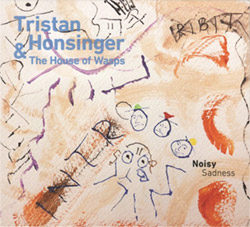
![Lindorff-Ellery, Evan: Church Recordings from Monhegan [CASSETTE]](https://www.teuthida.com/productImages/misc4/35949.jpg)
![Schindler, Udo / Werner Dafeldecker / Gunnar Geisse: Travelling Sound Images - Cognitive Transfers [Trio]](https://www.teuthida.com/productImages/misc4/35767.jpg)

![Egberth, Dennis: The Dennis Egberth Dynasty [VINYL]](https://www.teuthida.com/productImages/misc4/35549.jpg)


![Schindler, Udo / Rieko Okuda / Eric Zwang Eriksson: Disturbed Terrains [2 CDs]](https://www.teuthida.com/productImages/misc4/35330.jpg)






![Olencki, Weston : Pearls Ground Down To Powder [VINYL]](https://www.teuthida.com/productImages/misc4/35956.jpg)
![Myers, David Lee: Oculus [2CDs]](https://www.teuthida.com/productImages/misc4/35857.jpg)


![dustsceawung: dustsceawung [CASSETTE w/ Download]](https://www.teuthida.com/productImages/misc4/35753.jpg)




![Halls of the Machine: Atmospheres For Lovers And Sleepers [CASSETTE w/ DOWNLOAD]](https://www.teuthida.com/productImages/misc4/35806.jpg)



![AHC (Alexander Cooper): Lase [2 CDs]](https://www.teuthida.com/productImages/misc4/35754.jpg)



![Fagaschinski, Kai / Yan Jun : Graveyard Processions [VINYL w/ DOWNLOAD]](https://www.teuthida.com/productImages/misc4/35474.jpg)
![Brant, Cody / Carl Kruger: Smoke Detail [CASSETTE w/ DOWNLOAD]](https://www.teuthida.com/productImages/misc4/35551.jpg)








![Zorn, John / JACK Quartet: The Complete String Quartets [2 CDs]](https://www.teuthida.com/productImages/misc4/35609.jpg)

![Lonsdale, Eden: Dawnings [2 CDs]](https://www.teuthida.com/productImages/misc4/35480.jpg)







![Sanna, Claudio: Compositori Sardi Contemporanei II [2 CDs]](https://www.teuthida.com/productImages/misc4/35317.jpg)







![Zurria, Manuel: Fame di Vento [3 CDs]](https://www.teuthida.com/productImages/misc4/35167.jpg)

![Granberg, Magnus / Nattens Inbrott / Skogen: Holde Traume, Kehret Wieder! [2 CDs]](https://www.teuthida.com/productImages/misc4/35038.jpg)

![Electric Bird Noise / Derek Roddy: 8-10-22 [CD EP]](https://www.teuthida.com/productImages/misc4/35970.jpg)








![Elephant9 : Mythical River [VINYL]](https://www.teuthida.com/productImages/misc4/34624.jpg)



![Elephant9 with Terje Rypdal: Catching Fire [VINYL 2 LPs]](https://www.teuthida.com/productImages/misc4/35355.jpg)
![Deerlady (Obomsawin, Mali / Magdalena Abrego): Greatest Hits [VINYL]](https://www.teuthida.com/productImages/misc4/34876.jpg)







![Surplus 1980: Illusion of Consistency [CD]](https://www.teuthida.com/productImages/misc4/35069.jpg)
![Staiano, Moe: Away Towards the Light [VINYL + DOWNLOAD]](https://www.teuthida.com/productImages/misc4/35037.jpg)



![Caveira (Gomes / Sousa / Abras / Ferrandini): Ficar Vivo [VINYL]](https://www.teuthida.com/productImages/misc4/34643.jpg)
![Coley, Byron: Dating Tips for Touring Bands [VINYL]](https://www.teuthida.com/productImages/misc4/17906.jpg)

![Lost Kisses: My Life is Sad & Funny [DVD]](https://www.teuthida.com/productImages/misc4/lostKissesDVD.jpg)